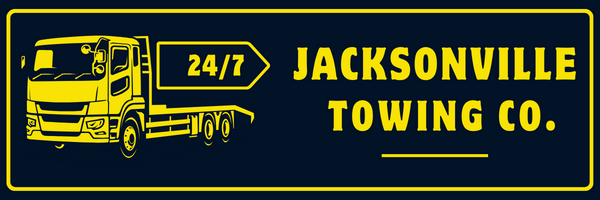To become a tow truck driver, start by obtaining a commercial driver’s license (CDL). Depending on the tow truck’s size and the type of operations you’ll run, additional endorsements might be necessary.
Complete vocational training in automotive mechanics, and focus on safety, customer service, and technical skills to enhance your prospects.
Physical fitness and clear vision are non-negotiable for the job. Gaining experience through entry-level positions will pave your way.
Keep up with license renewals, and secure comprehensive insurance to build trust with clients.
Understanding Licensing Requirements
To begin a career as a tow truck driver, you’ll need to complete licensing requirements specific to your location. Each state or country has its own set of rules, and you need to know these before you start.
Typically, a commercial driver’s license (CDL) is a prerequisite. However, depending on the weight of the tow truck and the nature of the towing operations, additional endorsements may be necessary.
License renewal is another aspect you can’t afford to overlook. Renewal periods vary, and staying on top of these deadlines ensures you remain compliant and able to work without interruption.
Insurance policies are equally important. As a tow truck driver, you’ll need more than the standard vehicle insurance.
Comprehensive coverage that protects you, your tow truck, and the vehicles you tow is essential.
This not only safeguards your financial stability but also boosts your credibility and trustworthiness in the eyes of your clients.
Understanding these licensing and insurance requirements is your first step toward a successful career in tow truck driving. Stay informed, stay compliant, and you’re well on your way.
Necessary Educational Background
While specific licensing requirements are foundational, your educational background plays a critical role in becoming a proficient tow truck driver.
You don’t necessarily need a college degree, but a high school diploma or GED is typically required.
This basic educational requirement ensures you possess fundamental skills in reading, writing, and basic math, which are essential for understanding operational manuals, completing paperwork, and managing logs.
Further education, such as vocational training or courses in automotive mechanics, can significantly bolster your resume.
As the industry evolves, being knowledgeable about different types of vehicles and their specific towing needs can set you apart.
Some companies offer or require additional training programs that focus on safety protocols, customer service, and advanced driving techniques.
These programs enrich your skill set and prepare you for a wider range of scenarios on the job.
Physical and Health Criteria
Meeting the physical and health criteria is essential for ensuring you can safely perform the demanding tasks of a tow truck driver.
The nature of the job requires not just mental alertness but also a high level of physical fitness.
You’ll be handling heavy equipment, securing vehicles for towing, and sometimes working in challenging weather conditions. This means you’ll need to have good physical strength and stamina.
Vision standards are particularly important in this profession. Driving safely, especially under varied and sometimes adverse weather conditions, requires excellent vision.
You must be able to meet specific vision requirements to ensure you can navigate roads safely, spot hazards quickly, and manage the precise hook-up of vehicles to be towed.
Regular eye exams are a must to maintain your qualification as a tow truck driver.
Equally important is the need to screen for and manage sleep disorders.
Given the irregular hours and the potential for long shifts, tow truck drivers are at a higher risk for conditions like sleep apnea, which can severely impact your ability to stay alert and react quickly while on the job.
Regular health check-ups to monitor for these conditions are essential for your safety and the safety of others on the road.
Skills and Training Needed
Beyond physical fitness and health, you’ll need specific skills and training to excel as a tow truck driver. Mastering customer service is necessary.
Being able to communicate effectively, exhibit empathy, and maintain professionalism under pressure will set you apart.
Understanding and adhering to safety protocols can’t be overstated.
You’ll undergo training that covers the correct ways to secure and tow different types of vehicles, manage hazardous materials, and navigate through adverse weather conditions safely.
This knowledge is critical, not only for your safety but also for the safety of those around you on the road.
You’ll also need technical training, which typically includes learning how to operate the tow truck and its equipment efficiently.
This might involve hands-on training with an experienced tow truck operator or attending a vocational school.
Additionally, you’ll need to familiarize yourself with the laws and regulations pertaining to towing in your area, which can vary significantly.
Gaining Experience and Employment
After honing your skills and completing the necessary training, you should focus on gaining experience and finding employment as a tow truck driver.
First, you must immerse yourself in the industry.
Stay updated on the latest industry trends and technologies; this knowledge not only makes you more valuable as an employee but also gives you topics to discuss during networking events.
Effective networking strategies can open doors to opportunities that might not be advertised publicly.
Attend industry conferences, join tow truck driver forums, and connect with professionals on LinkedIn. Show genuine interest in others’ experiences, and share your aspirations.
When seeking employment, tailor your resume to highlight your relevant training and any experience that demonstrates your reliability and skillset.
Don’t shy away from starting in entry-level positions. These roles provide invaluable on-the-job experience that can catapult your career forward.
Persistence and a positive attitude often make the difference between landing a job and missing out. Keep pushing, keep learning, and soon, you’ll find your place in the tow truck driving industry.

